This year, 20 or so construction workers in the northern province of Hebei decided not to join China’s legion of migrant workers heading home to celebrate new year with their families.
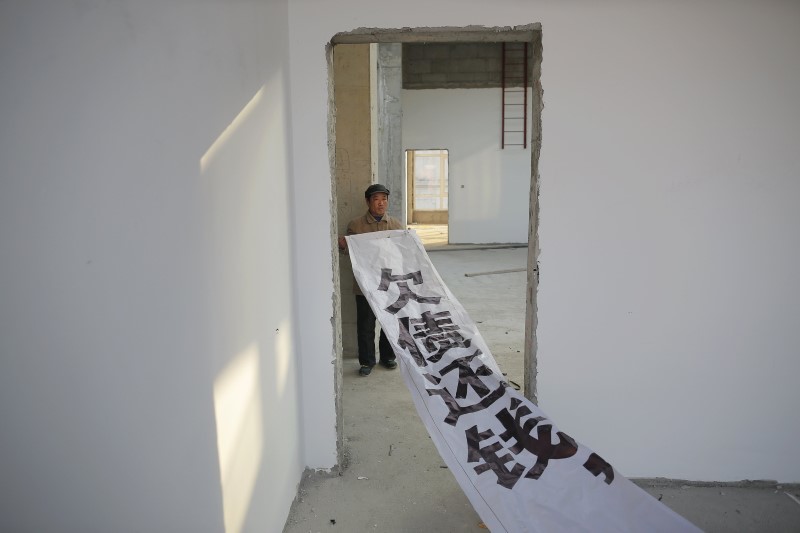
Too angry and proud to arrive home empty-handed, they have stayed put, demanding nearly a year’s unpaid wages.
This protest banner, which workers claim authorities told them to stop using, reads: “Pay back the money that you owe”.
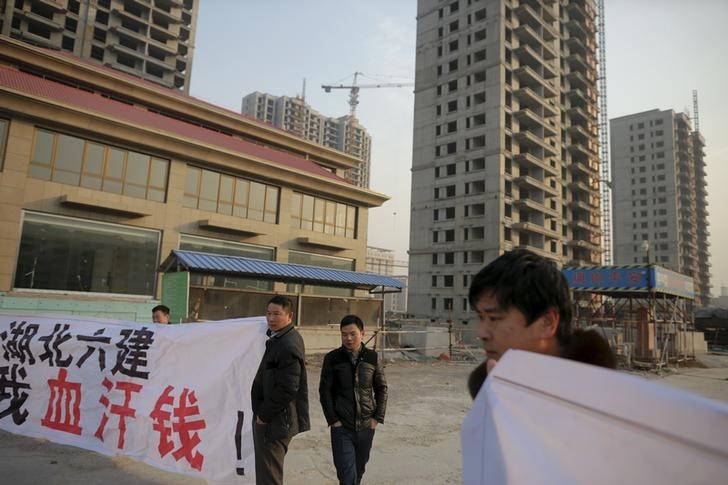
“The developer has kept using the fact that they have no money as an excuse,” said Fan Fu, who brought others from his hometown in the western province of Sichuan to work on the Zixia Garden apartment complex in Qianan, Tangshan City. “As of now they haven’t paid us a single penny.”
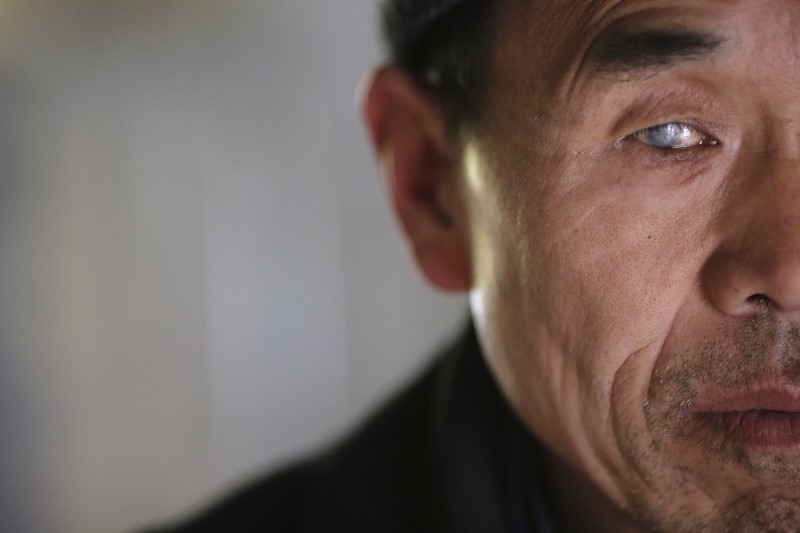
“We really don’t have any other options,” he said in the offices of a subcontractor, crowded with bedding and personal possessions.
With China’s economy growing at its slowest in 25 years, more workers face a similar predicament and labour unrest is on the rise, a concern for Beijing as it seeks to avoid social unrest even as financial pressures build.
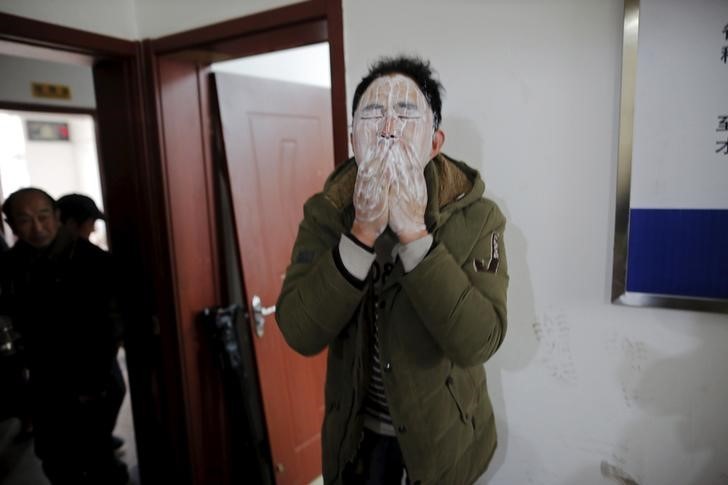
The group had earlier petitioned local authorities for redress and staged protests outside government offices in Qian’an.
When water and electricity were cut to the dorm where they lived, a subcontractor allowed them to move in temporarily.
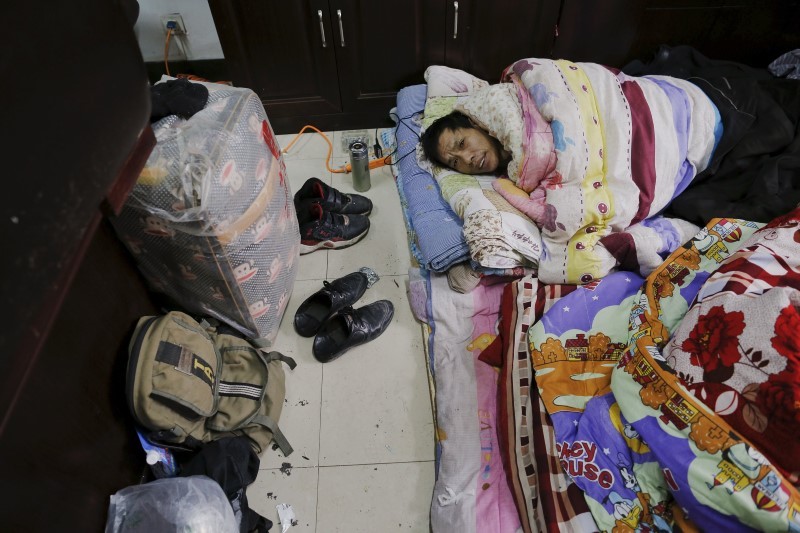
Fan and about 530 other workers on the apartment project are owed pay cheques of between 20,000 and 50,000 yuan ($3,000-$7,500). They said the government had offered each non-local labourer 2,000 yuan in cash if they left for the holidays.
The developer, Qianan City Xinyuan Real Estate, did not respond to requests for comment on the protests and the unpaid wages. The Qian’an government said they were looking into the issue but declined to give details.
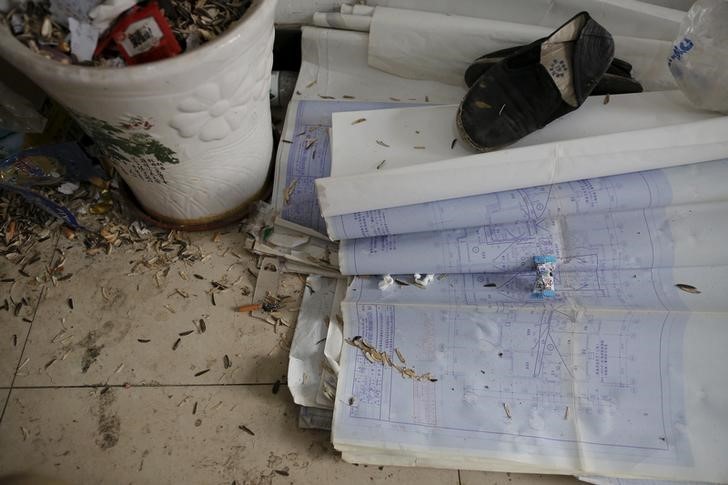
China’s senior Communist Party leaders, including President Xi Jinping, have long championed workers’ rights, and are often photographed visiting factories.
The government is concerned that protests over issues like unpaid wages could spill over into broader dissatisfaction at its rule, as it has derived much legitimacy over the past decades from delivering a higher standard of living.

Before the holiday, Beijing issued a notice calling on local authorities to “seriously investigate all incidents of wage arrears, so that migrant workers would be paid in a timely manner and in full,” the state-run Workers Daily newspaper reported.
Over the past few months, however, authorities have arrested at least seven labour activists in Guangdong province in the largest crackdown on organised labour in China in recent years.

China’s state Xinhua news agency accused the men of running illegal non-governmental organisations that had been “severely disrupting social order.” China’s Foreign Ministry said the cases would be handled “in accordance with the law.”
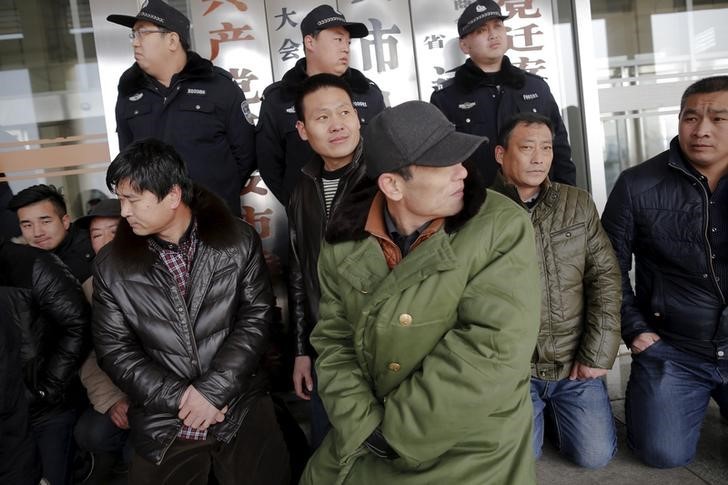
Back on the Zixia Garden site, migrant workers display banners. The characters in red read, “Blood sweat money”.
As travel ramped up ahead of the holiday, it was not only construction workers who prepared to celebrate with less money in their pockets.

An online survey by the job recruitment company Zhilian Zhaopin said two-thirds of more than 10,000 white-collar workers it surveyed were not expecting Lunar New Year bonuses.
By Damir Sagolj, Natalie Thomas and James Pomfret. Text editing by Brian McGee.
